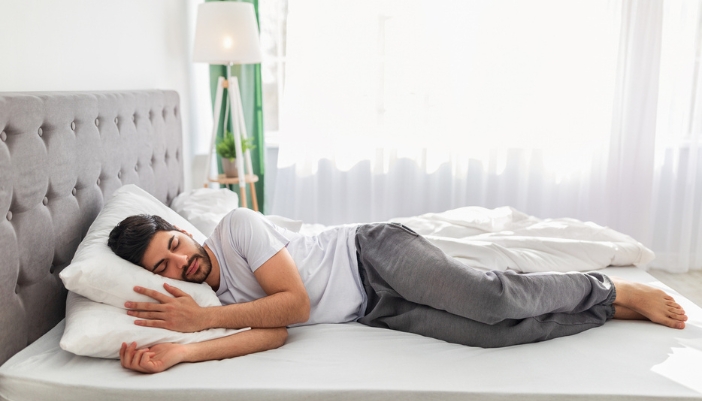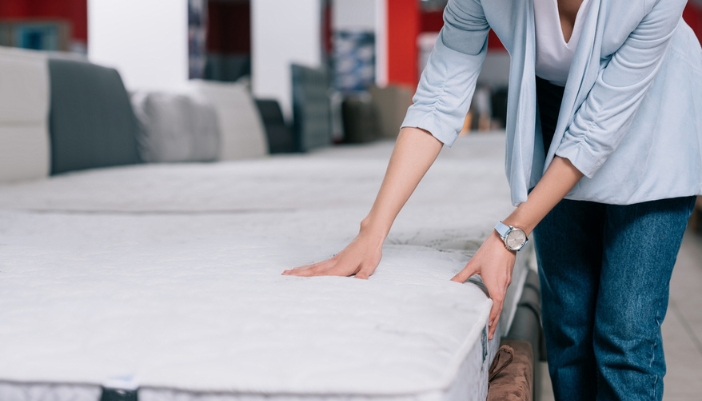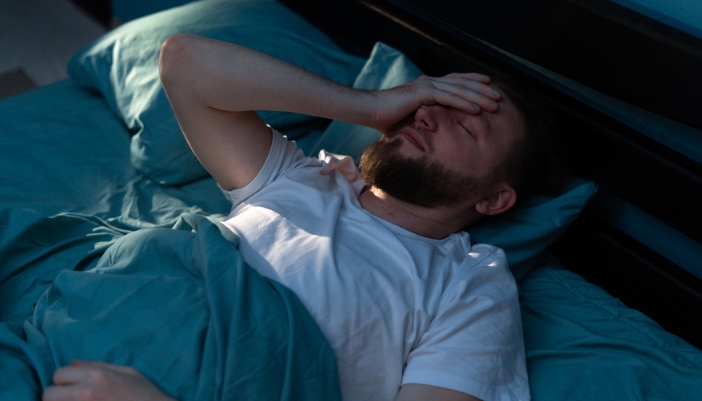Ever wake up feeling like your mattress spent the night plotting against you? Your back aches, your shoulders are stiff, and no amount of stretching seems to undo the damage. If this sounds familiar, your bed might be working against your spine instead of supporting it.
The truth is, not all mattresses are built for proper spinal alignment—and sleeping on the wrong one can turn a good night's rest into a nightly battle with discomfort. But don't worry, our experts at Mauston Furniture & Appliance are here to help you find a mattress that works with your body so you can finally wake up feeling refreshed instead of wrecked.
Disclaimer: The information on this site is not intended or implied to be a substitute for professional medical advice, diagnosis, or treatment. If you suffer from any symptoms or diagnoses we discuss, please consult your physician prior to making any decisions.

How Your Mattress Affects Your Spine
You wouldn't wear shoes that throw off your posture, so why sleep on a mattress that does? The right bed supports your spine's natural curve, keeping everything aligned while you rest. But the wrong one? That's where the trouble starts—leading to poor posture, muscle tension, and those mornings where you wake up feeling 10 years older.
- Alignment matters. Your spine has a natural S-curve, and a mattress that's too soft or too firm can throw it out of balance, causing discomfort over time.
- Sagging spells trouble. If your mattress has a permanent dip in the middle, it's not supporting your back properly, leading to stiffness and pain.
- Pressure points can make or break sleep. A good mattress distributes weight evenly, while a bad one puts excess pressure on your shoulders, hips, or lower back.
- Sleep position plays a role. Different positions require different levels of support—side sleepers need cushioning, while stomach sleepers need a firmer surface.
- Your body changes, but your mattress doesn't. Over time, your support needs can shift due to age, injuries, or lifestyle changes, making it essential to reassess your mattress.

Best Mattress Types for Spinal Support
Not all mattresses are created equal, but that doesn't mean there's a one-size-fits-all solution. The best mattress for your back depends on how you sleep, what feels comfortable, and how much support your spine needs. Let's break down the most common types and what they bring to the table!
- Memory Foam: Known for contouring to your body and relieving pressure points, memory foam is excellent for spinal alignment—just make sure it's not too soft, or you might sink in too much.
- Latex: Naturally responsive and supportive, latex mattresses keep your spine aligned while offering a bit more bounce than memory foam. Bonus: They're also super durable.
- Hybrid: The best of both worlds—coils for support, foam or latex for comfort. A good hybrid mattress provides a balance of cushioning and spinal alignment.
- Innerspring: Traditional and breathable, innerspring mattresses can be supportive but tend to have less contouring. Adding a plush topper can help with pressure relief.
- Adjustable Beds: If you need customized support, an adjustable base lets you tweak the angle of your mattress to reduce pressure on your back.

Finding the Right Firmness Level
Firmness can be tricky—too soft and you sink, too firm and you feel like you're sleeping on a plank. The goal? Just the right amount of support to keep your spine aligned without creating pressure points. And no, firmer doesn't always mean better for back pain!
- Back sleepers: A medium-firm mattress is usually ideal, offering enough support to keep your spine in neutral alignment without being too stiff.
- Side sleepers: A softer mattress (medium to medium-soft) helps cushion shoulders and hips, reducing pressure points while still supporting the spine.
- Stomach sleepers: A firmer mattress prevents your midsection from sinking too much, which can strain your lower back.
- Combination sleepers: If you shift positions throughout the night, a medium-firm mattress with a bit of contouring works well for all-around support.
Other Mattress Features That Help with Back Pain
Firmness and mattress type are big factors, but the little details can make a huge difference in how your back feels when you wake up. Some mattresses have extra features designed to give your spine the support it deserves—without sacrificing comfort.
- Zoned support: Some mattresses are firmer in the middle (where your lower back needs it most) and softer near the shoulders and legs for better pressure relief.
- Pillow tops and plush layers: A soft top layer can add comfort, but too much cushioning without proper support underneath can cause spinal alignment to be thrown off.
- Edge support: Reinforced edges prevent sagging and help keep your body properly positioned, especially if you tend to sleep near the edge of the bed.
- Cooling technology: Overheating can cause restless sleep, and poor sleep quality can make back pain feel even worse—materials like gel-infused foam or breathable covers can help.
- Adjustability: If you need customized positioning, an adjustable bed lets you elevate your head or legs to relieve pressure on your spine.

When It's Time to Replace Your Mattress
Mattresses aren't forever, and hanging onto one past its prime can do a number on your back. If you wake up sore or notice dips and lumps, your mattress might be more of a problem than a solution.
Here's how to know when it's time for an upgrade:
- It's over 7-10 years old. Around this time, most mattresses start losing their support, even if they still look okay.
- You wake up with aches and pains. If your back feels worse in the morning but improves as the day goes on, your mattress could be the culprit.
- You see (or feel) sagging. If your mattress has visible dips or you feel like you're rolling into a crater, it's no longer providing proper support.
- You sleep better somewhere else. If a hotel bed or even your couch feels better than your own mattress, that's a red flag.
- Your sleep quality has taken a hit. Tossing, turning, and waking up frequently can all point to a mattress that's no longer doing its job.
Wake Up on the Right Side of the Bed
If your mornings feel more like a recovery mission than a fresh start, it's time to rethink what you're sleeping on. Your mattress plays a huge role in spinal health, and finding the right one isn't about guessing—it's about knowing what works for you.
Not sure where to start? Our experts at Mauston Furniture & Appliance are here to help. Whether you need advice, have questions, or just want to test out some options, we've got your back (literally). Stop by and check out our selection—we'll help you find a mattress that lets you wake up feeling good.